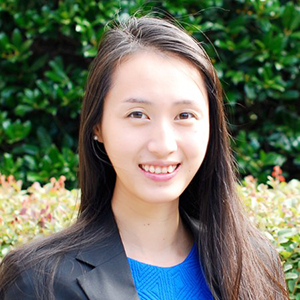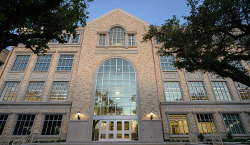A group of TCU Neeley finance professors researched how business leader ideologies could influence stock returns and the pandemic.
April 09, 2021
By Mariana Rivas
From the start of the initial shut down of the COVID-19 pandemic in March 2020, a group of TCU finance professors were asking each other one fundamental question.
“Noticing how there was a lot of variation: some stores, like Costco, were taking a lot of precautionary measures, whereas some weren't, we were asking the question, ‘Can there be anything that connects these store policies to shareholder welfare?’” said Associate Professor of Finance Swaminathan Kalpathy.
Kalpathy joined forces with Vassil Mihov, associate professor of finance and Theodore and Beulah Beasley Faculty Fellow; Jue Ren, assistant professor of economics and finance; and John Bizjak, the Robert and Maria Lowdon Professor of Finance. They researched the economic implications of how different CEO’s political leanings were affecting their retail location’s precautionary measures, and in turn how those actions affected customer visits, stock returns, COVID transmission rates, and to the extreme: COVID-related deaths.

The compiled study, now under peer review, found that firms with Republican-leaning CEOs saw an increase of visits to their retail stores. More visits correlated with higher stock returns but also with more safety complaints from employees. It also found that counties with more store visits had higher COVID transmission rates.
Bizjak said that everyone was debating if businesses should stay open to help the economy or control the spread of the virus, and “we were able to kind of shed some light on this trade-off, which I hadn't really seen anybody do.”
To find these results, the professors tracked thousands of daily visits of 1.9 million stores for several months and dealt with numerous other data points like COVID transmission rates and CEO political donations.
“I haven't really worked on any paper that required so many data sources,” Kalpathy said.
The timely study combined some of the most relevant aspects of 2020 like politics and the pandemic under a scientific lens.
“One of the biggest challenges is that we as economists, and we hope and think of ourselves as scientists, we have to be very careful, and we cannot make unsubstantiated statements that some can misinterpret,” Mihov said.
Ren said that each of the data points were manually checked. “We are very careful about the execution,” she said.
But Kalpathy also said he was impacted by how robust the findings were.
“In empirics what you often encounter is that sometimes results can be very fragile, depending on the sub samples you work with the assumptions that you impose,” he said. But this time the results were consistent across different specifications.
Bizjak said he hoped that the results could serve as a model if something similar were to ever occur, and business would have to manage another societal trade-off.
“Firms have a lot of discretion in terms of what policies they undertake, and to some extent, it can either complement local policies, or it can actually have an opposing effect,” Kalpathy said. “There's a lot of variation in how firms respond, and that can have implications for society, so I think that is a big takeaway from our paper.”
Read the full study here.





